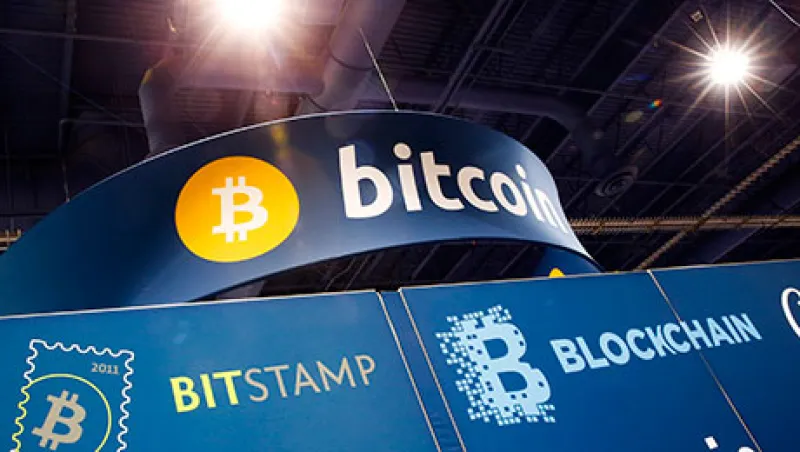As with any new product, Bitcoin’s success will ultimately be defined by market acceptance. One study, by U.K.-based Juniper Research, projects 4.7 million active users worldwide by 2019 — hardly a mass-market number, and still highly speculative. Debates remain unresolved between skeptics and boosters of Bitcoin start-ups, while regulators try to figure out how and when their consumer- and market-protection responsibilities will kick in.
Some in the entrepreneurial camp say the focus on Bitcoin and rival cryptocurrencies, in simple product acceptance terms, is too narrow. They believe the real action — and truly revolutionary business potential — is in the blockchain, the open ledger where transactions are securely and immutably recorded. A case in point is the Level39 technology accelerator in London, which announced on April 2 that it is hosting for Zurich-based banking giant UBS an innovation lab that “will investigate blockchain and other distributed ledger technologies along with smart contracts and work on potential new applications.”
Analogues between the blockchain and transaction and settlement systems — that is, critical financial industry infrastructures — led Michael Mainelli, executive chairman of London-based consulting firm Z/Yen Group, to conclude that “blockchain technology is likely to transform all financial markets, because all financial markets rely on trusted third parties.” Mainelli, co-author of a December 2014 paper on the subject, is not alone in suggesting that the blockchain could displace traditional trusted-third-party functions in banking, securities and insurance.
Indeed, serious blockchain business propositions are emerging. For example, an alliance with IBM Corp. helped bring credibility to Ethereum, a developer of decentralized applications using blockchain technology, and Singapore-based DigixGlobal has built a gold marketplace on Ethereum’s platform. Spotlighting Wall Street’s interest was the March appointment of former JPMorgan Chase & Co. executive Blythe Masters as CEO of Digital Asset Holdings. The start-up aims to “reinvent the aging, costly and hack-prone legacy processes and infrastructure of settlement services,” says co-founder and longtime derivatives trading innovator Sunil Hirani.
But even these bigger-picture-than- Bitcoin moves will likely be looked back on as baby steps.
“It feels a lot like 1994,” Peter Kirby, president of Factom, a blockchain applications company launched last September with a data management and recordkeeping remit, tells Institutional Investor. “People are saying this could touch everything and change the way business is done,” much like the early Internet buzz. Of course, the Internet had growing pains and a market crash in its future, and Bitcoin 2.0, as ventures like Factom have been dubbed, will surely hit some bumps in the road.
Kirby, whose business background includes bitcoin hardware, consumer goods and mortgages, reports that the blockchain’s tamper-proof nature resonates with prospective clients in such fields as auditing and land title recording. “Factom makes it easy to take what you have and put blockchain on the back end,” Kirby explains. So vast are the private and public sector opportunities, he says, that a small start-up has to maintain a measured, disciplined pace. “What is a bank but a giant pile of records?” he adds.
Another company with financial-application designs is Noble Markets, which came out of stealth mode on March 24 with the announcement that it will be using Nasdaq OMX Group’s X-stream trading technology as part of its “capital markets for the blockchain era” strategy. Founder and CEO John Betts, a former Morgan Stanley and Goldman Sachs equities e-trading executive, notes the irony that the originators of Bitcoin were antiestablishment; now firms like his are out to “solve existing business problems, with the potential for innovation on top of that” in blockchain-based ledgers and smart contracts — a highly touted killer app that combines automated contract execution and payments.
Also look for anti- or alt-Bitcoin innovation. Tim Jones, who co-invented the Mondex e-payment system while with NatWest Bank in the 1990s, is pushing a digital currency called Tibado. Marketing will begin in earnest after Jones leaves his current post as CEO of the U.K.’s NEST pension system later this year. “I expect a lot of questions about how this is different from Bitcoin,” Jones says. For one thing, Tibado’s coins will be part of the banking system and fiat money, which Bitcoins are not.






